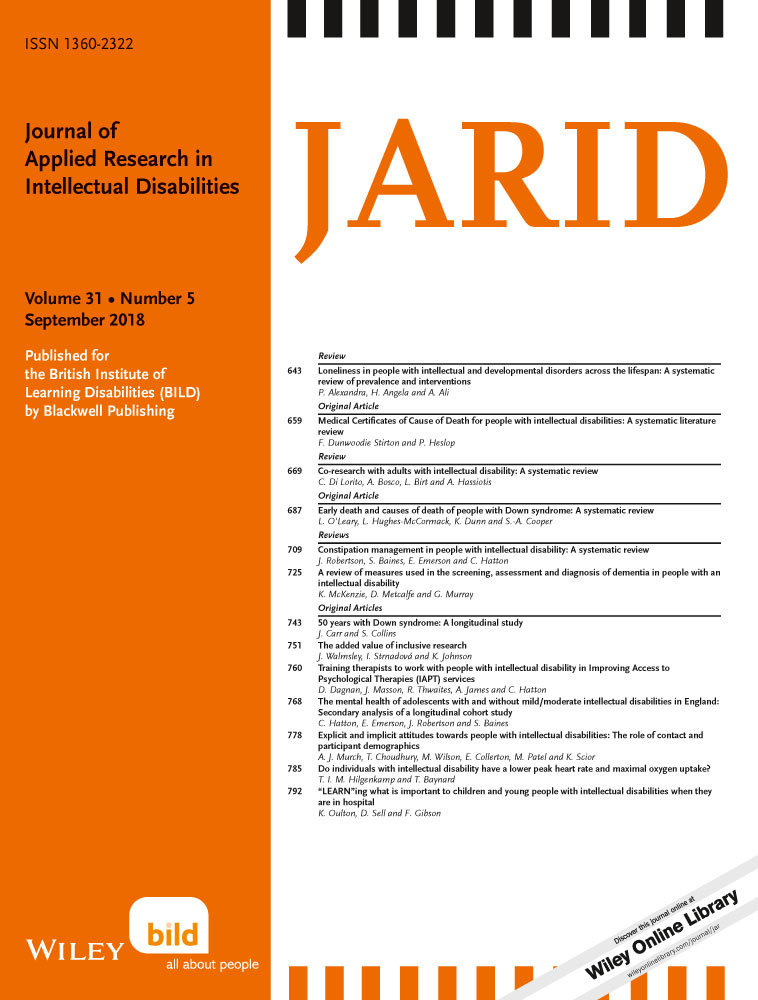Irish persons with intellectual disability moving from family care to residential accommodation in a period of austerity
Abstract
Background
Ireland has a growing population of adult persons living with family carers, thereby increasing the demand for residential places. Simultaneously, government policy aimed to reprovision residents living in congregated settings but at a time when funding was curtailed due to the economic crisis. This study examines the movements of people into and among three types of residential options between 2009 and 2014.
Method
A cohort of 20,163 persons recorded on the National Intellectual Disability Database in 2009 was identified and tracked to the 2014 database.
Results
An estimated 200 persons per annum (@1.6% of those living with families) moved from family care although the number of places available nationally fell by 9%. Moreover, transfers of existing residents into vacated places tended to exceed those from families.
Conclusions
More people will have to continue living with their families and for longer if funding for new places remains curtailed.
CONFLICT OF INTEREST
The authors report no conflict of interests.




